
1. Time for a Twitter shiur!
Today's topic: Rejoicing over and Praying for the Downfall of the Wicked
Today's topic: Rejoicing over and Praying for the Downfall of the Wicked
2. When this issue comes up (e.g. Osama bin Ladin or Trump's Covid-19), I find people tend to emphasize certain canonical sources in order to prove a particular point. Unsurprisingly, the range of perspectives attested in Biblical and Rabbinic literature complicates matters.
3. Disclaimer: I compare the reactions to bin Ladin and Trump not to equate their relative evils, but to assert that for those who believe Trump is evil, the same ethical and religious principles that would apply to the death of one ought to apply to the death of the other.
4. Disclaimer: This non-comprehensive thread only includes enough souces to demonstrate a range of opinions in the scope of Bib. and Rab. literature. Interpretations vary and this is not the final word on Jewish thought or practice.
Please read to the end before commenting.
Please read to the end before commenting.
5. I'm combining the topics of rejoicing over the wicked's downfall and praying for the wicked's downfall due to the overlapping theological implications and shared verses that appear in both contexts.
We'll start with the issue of rejoicing.
We'll start with the issue of rejoicing.
6. In Prov. 24:17-18 we find an explicit admonition against schadenfreude. Unlike abstract theological statements, this is a prescriptive instruction for how people ought to behave. 

7. Prov. 11:10 expresses a different sentiment, but this is only *descriptive* about how people rejoicing when the wicked fall, but note that it is not *prescriptive* about how they *should* act 

8. However, this distinction is lost when we turn to Ps. 58:11. Even though it's also descriptive about rejoicing at the downfall of the wicked, we find that it is *righteous* people who will rejoice and their rejoicing does not diminish their righteousness 

9. Independent of the above sources, we find several instances in the Bible of people rejoicing after their enemies have been vanquished, with no subsequent admonition of doing so.
10. The Song of the Sea (Ex. 15:1-21) and Deborah and Barak's song (Jud 5:1-31) may be familiar (and too long to reproduce here). We also find forms of rejoicing after the death of Ahav (1 Kings 22:36) and the defeat of Ammon and Moav (2 Chron 20:21) 
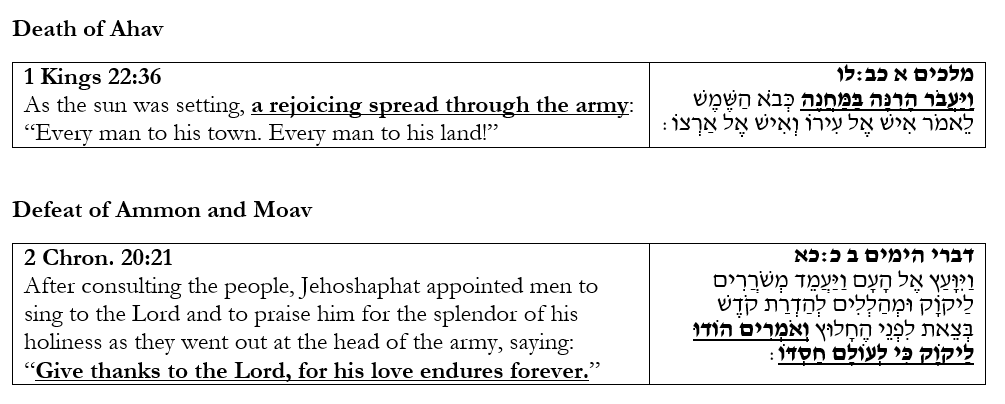
11. Moving to Rabbinic sources, we find an explicit affirmation for rejoicing at the downfall of the wicked in the following exposition on Ps. 104:35 (which will come up again later), attributing such rejoicing to King David himself. 
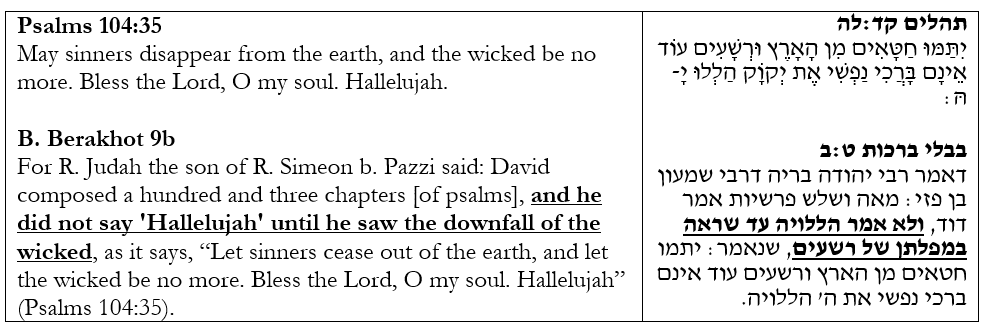
12. B. San 39b is often cited in the context of our question. We find the Sages reconciling conflicting Biblical sentiments w/the interpretation that *God* does not rejoice at the downfall of the wicked but *people* do. 
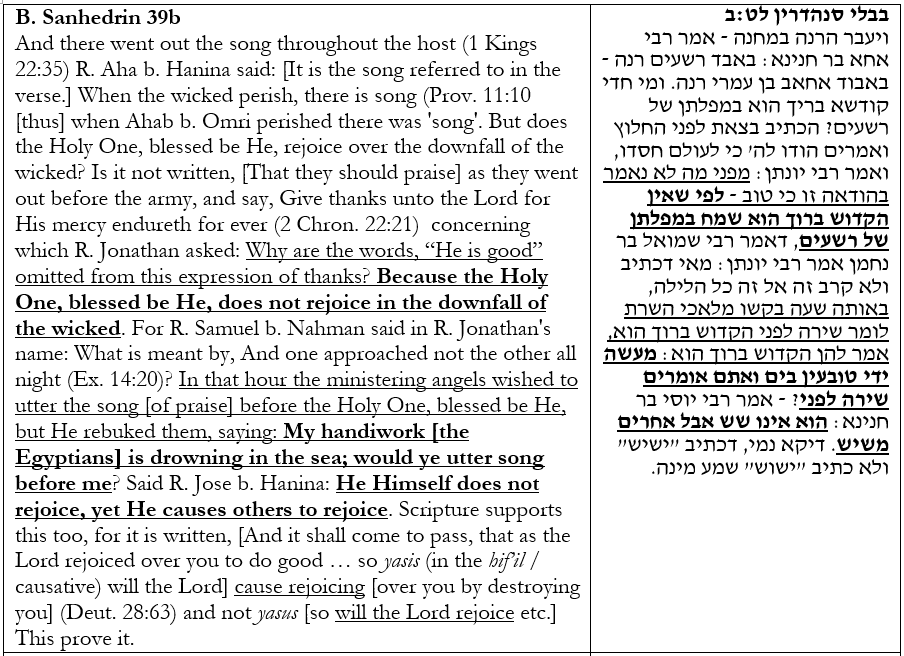
13. The supporting proof at the end is derived from a sensitive grammatical reading of Deut. 28:63. The translation below follows the common reading, but technically the word ישיש is in the causative form, not the active form. 

14. Unfortunately, I've found most of those who cite b. San 39b (or its parallel in b Meg 10b) to argue against rejoicing at the downfall of the wicked ignore the distinction between *God* rejoicing and *people* rejoicing. If anything, b. San 39b should *affirm* such rejoicing
15. I suspect this omission may be attributed to R. Yosef Karo's citation of R. Zedekiah ben Abraham Anav's homiletic use of b. San 39b re why Hallel is not recited on the last days of Passover.
Bec it's a tangent I will leave this here for those interested and move on.

Bec it's a tangent I will leave this here for those interested and move on.

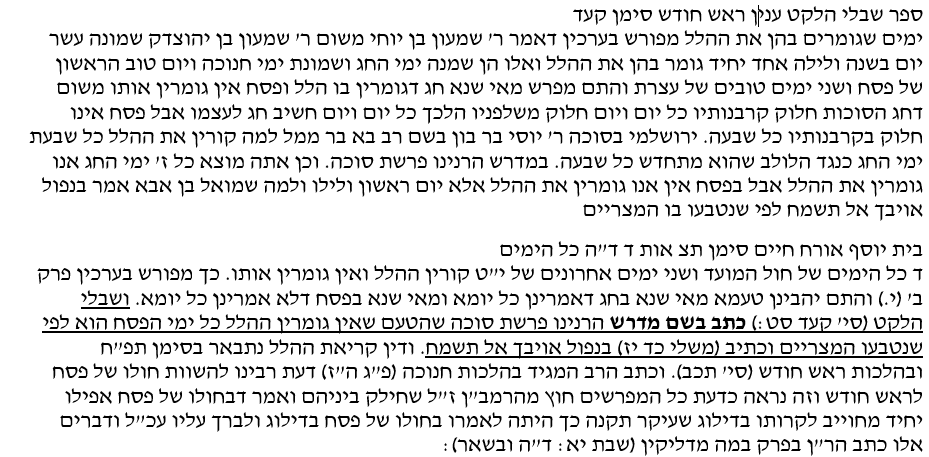
16. Returning to b. San 39b, the key distinction is that God does not rejoice in the death of the wicked.
Setting aside the larger question of anthropomorphism attributing human emotions to God, we find diff presentations of God's attitude towards the wicked's destruction
Setting aside the larger question of anthropomorphism attributing human emotions to God, we find diff presentations of God's attitude towards the wicked's destruction
18. According to the Meikhta of R. Shimon b Yohai, "When the Holy One, blessed be He, punishes the wicked, His name is glorified in the world," supported by numerous Biblical citations. 
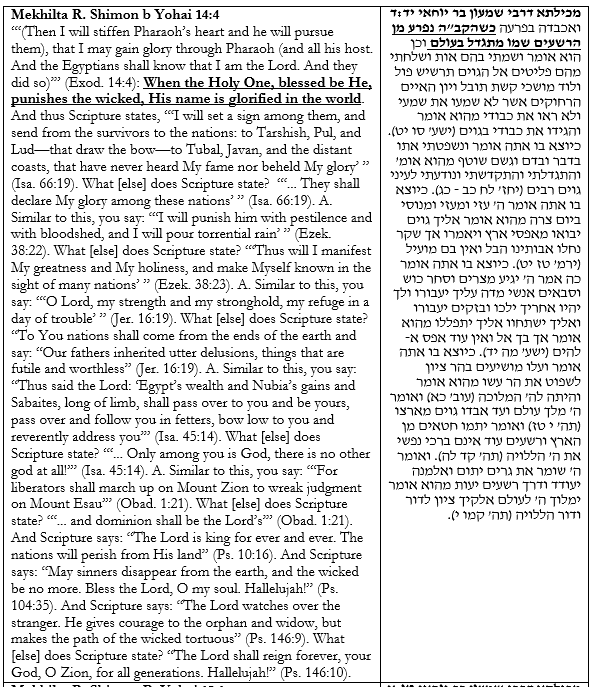
19. However, the ostensibly positive outcome of God's name being glorified should not be confused with God experiencing "joy." We find elsewhere in the Mekhilta that "there is no joy before God over the destruction of the wicked. 
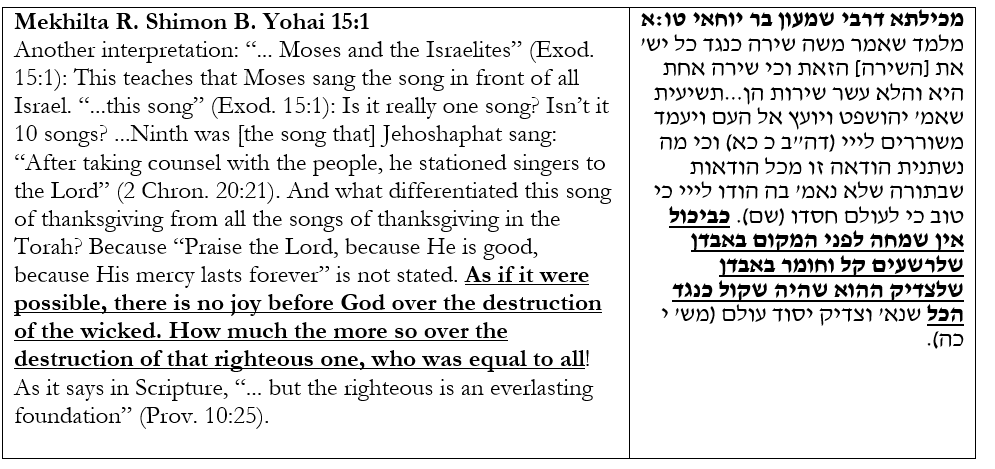
20. Instead, we find our first indication of God experiencing a positive reaction to the destruction in Midrash Tannanim re a subverted city lying in ruins: "it is pleasing to the Omnipresent when those who anger him are lost from the world" 
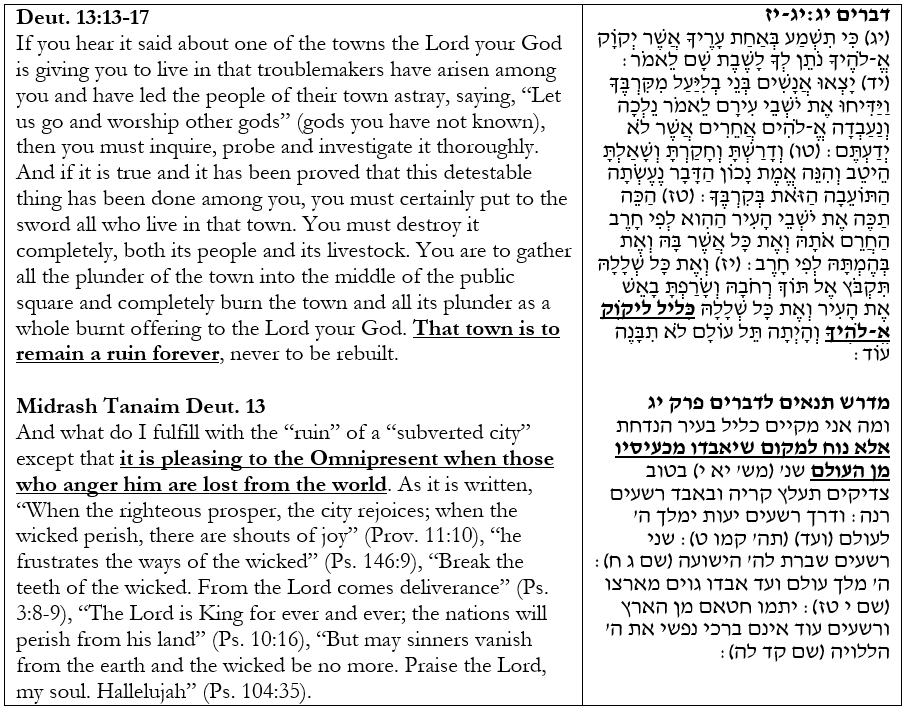
21. Beyond what is "pleasing" according to the opinion of R. Yishmael, "It is a *joy to the Omnipresent* when they that provoke Him do perish."
We may distinguish between God passively feeling joy and actively rejoicing from b San 32b, but this is still a theological fine line.

We may distinguish between God passively feeling joy and actively rejoicing from b San 32b, but this is still a theological fine line.
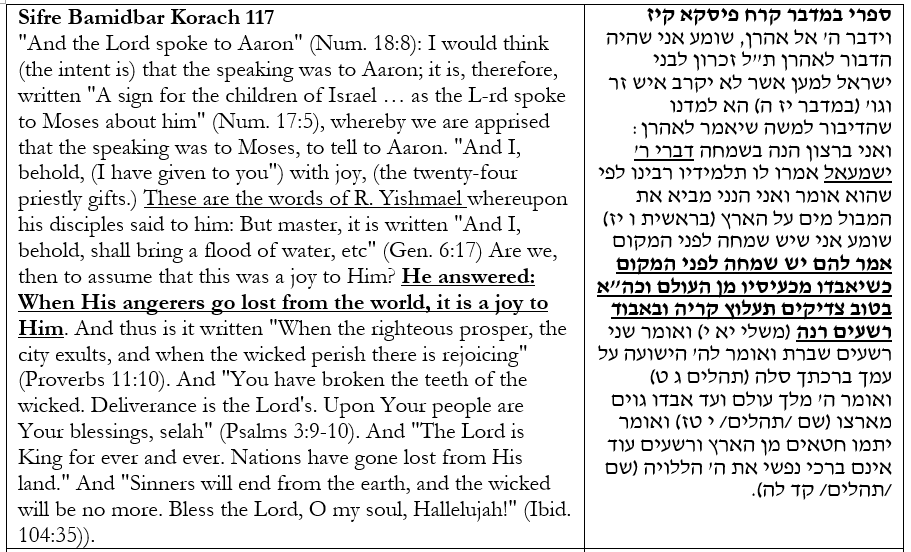
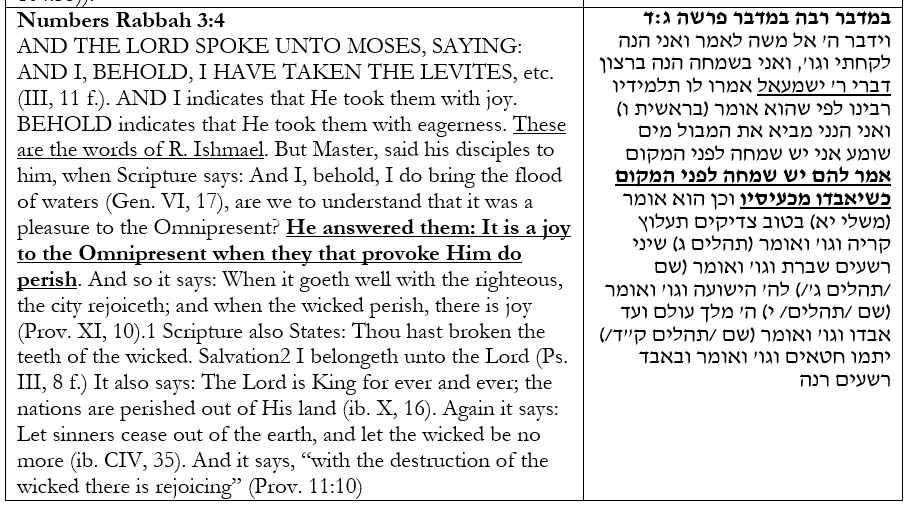
22. Thus far we have seen different approaches to rejoicing over the downfall of the wicked, including a range regarding God's own reaction.
We now turn to the range of opinions regarding actively praying for the downfall of the wicked.
We now turn to the range of opinions regarding actively praying for the downfall of the wicked.
23. Few people appreciate how much of the book of Psalms involves praying for the vanquishing of enemies. Here are 8 examples where the Psalmist explicitly prays for the downfall of enemies, including Ps. 79:6 which is part of the Passover Haggadah 
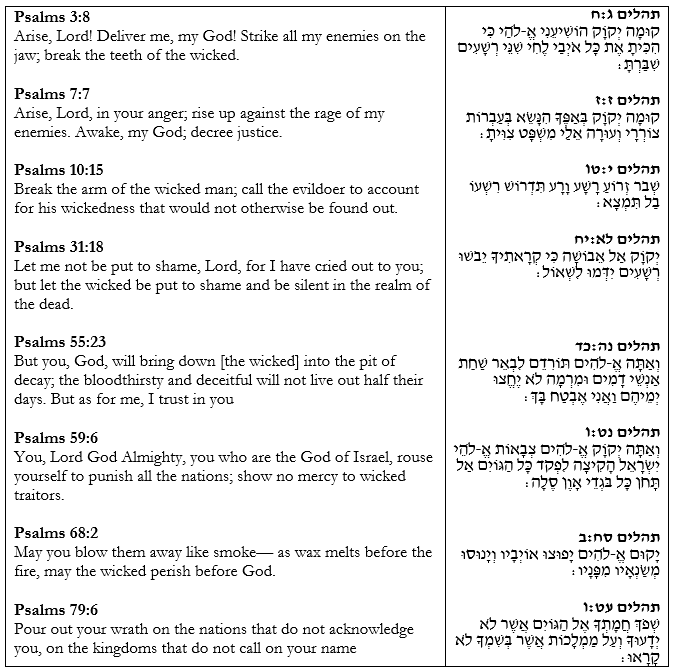
24. But despite the precedent set in Psalms, we must again turn to the question of *should* one pray for the downfall of one's enemies?
25. In this often-cited passage, R. Meir's wife Beruriah corrects him praying for harm to come to his antagonizers, interpreting Ps. 104:35 as not referring to "sinners" but "sins." She further evokes Ez. 18:33, 33:11 in preferring people repent rather than be punished. 
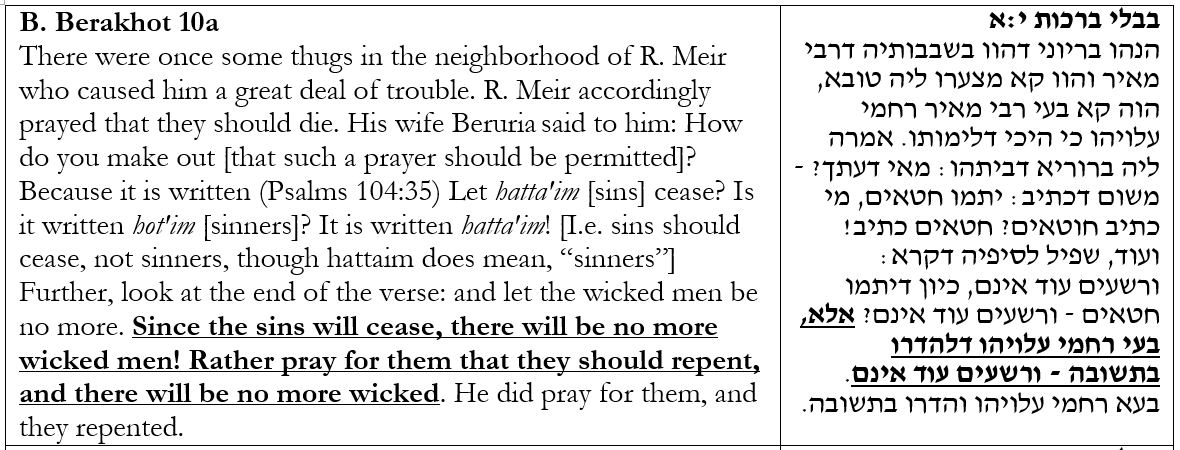
26. As others have noted, Beruriah's argument from grammar is not technically correct, and many of the sources cited above do in fact understand Ps. 104:35 as referring to "sinners" and not "sins."
Even so, the passage from B. Berakhot 10a views Beruriah's argument favorably
Even so, the passage from B. Berakhot 10a views Beruriah's argument favorably
27. We also find in B. Bava Kamma 93a statements which discourage praying against anyone, on the grounds that these may turn God's attention to the one complaining.
I believe this may be read in parallel with Prov. 24:17-18 cited at the beginning of this thread.
I believe this may be read in parallel with Prov. 24:17-18 cited at the beginning of this thread.
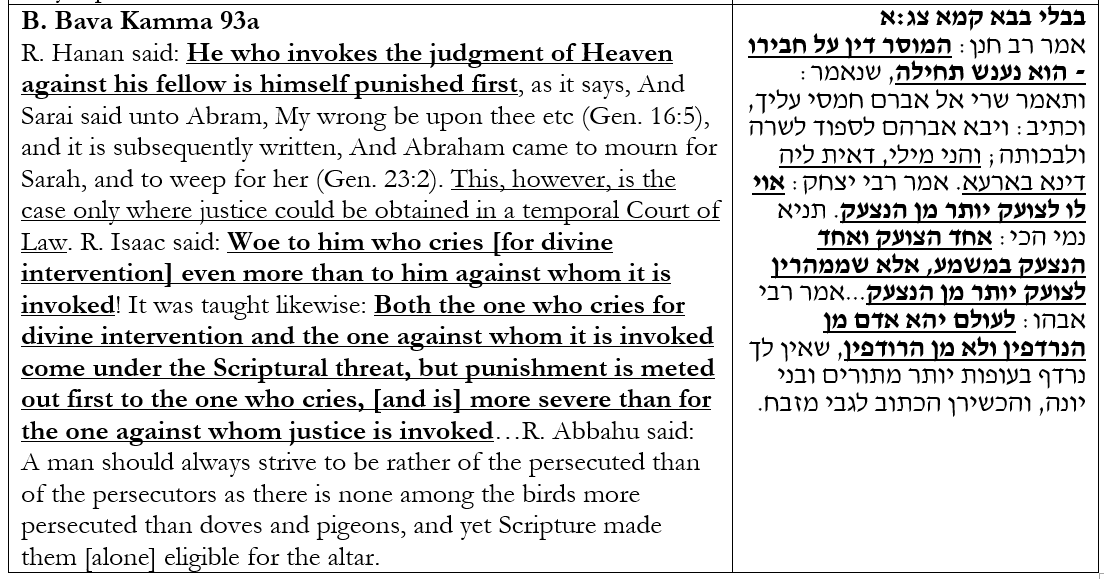
28. However, Jewish liturgy does include a prayer explicitly praying for the destruction of the wicked. It is the blessing in the 'amida prayer known as Birkat HaMinim or the "Blessing of the Heretics/Sectarians."
29. There is a long and fascinating history of this blessing, particularly regarding which specific groups warrant mention for destruction. For those interested, consult the following wonderful articles for details 

30. Here is the current text of the Birkhat Haminim according to three most common traditions of the liturgy 
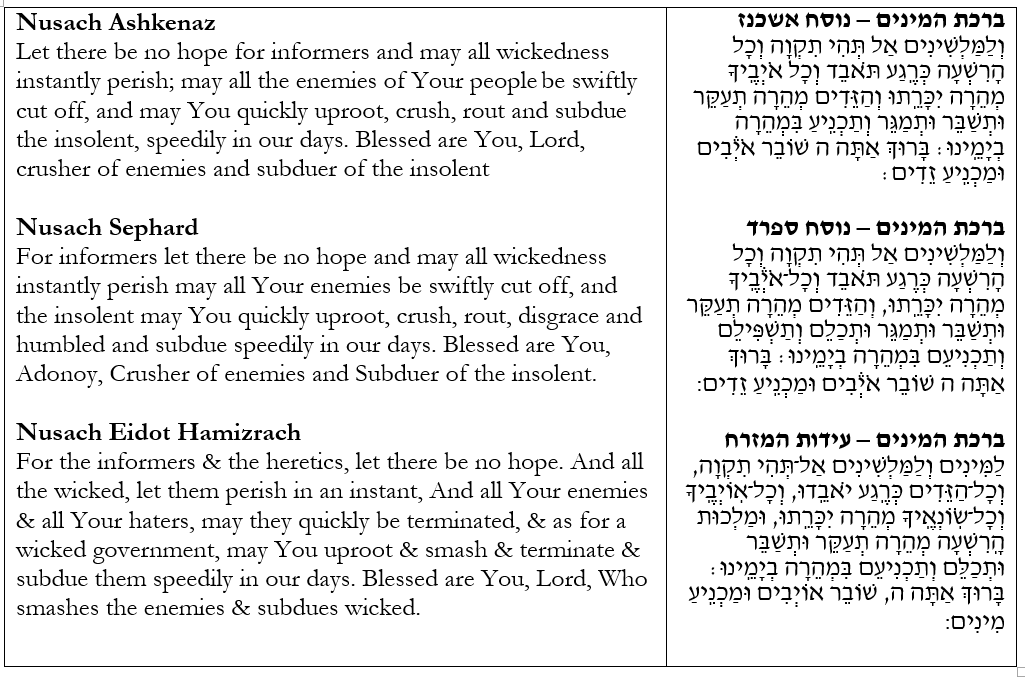
31. The Talmudic narrative on the origins of this blessing is no less fascinating. The amida prayer initially had 18 blessings and Birkat HaMinim was the 19th. One year it was composed by Shmuel HaKatan who subsequently forgot his own formulation. 

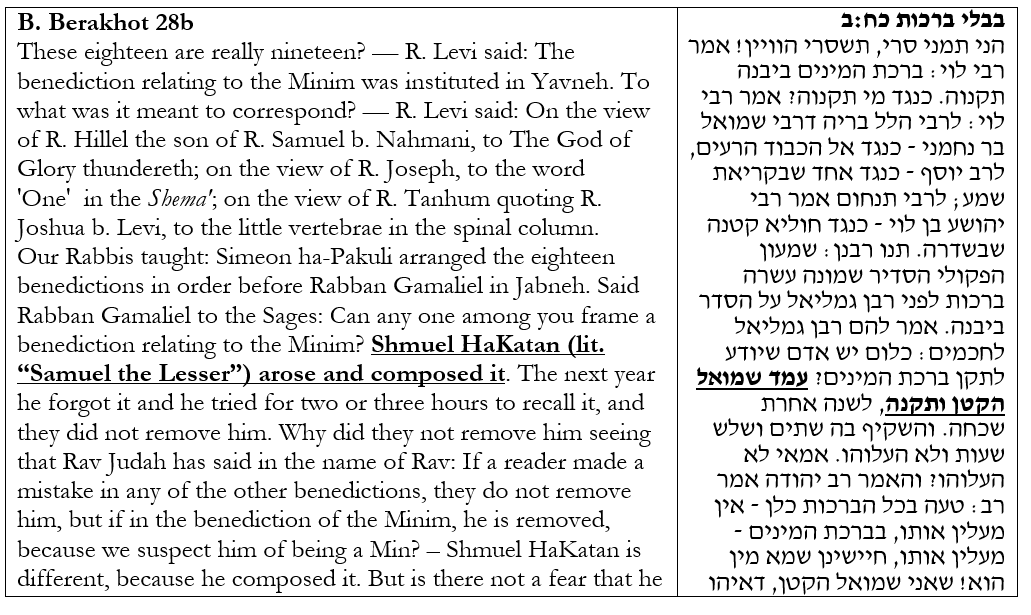
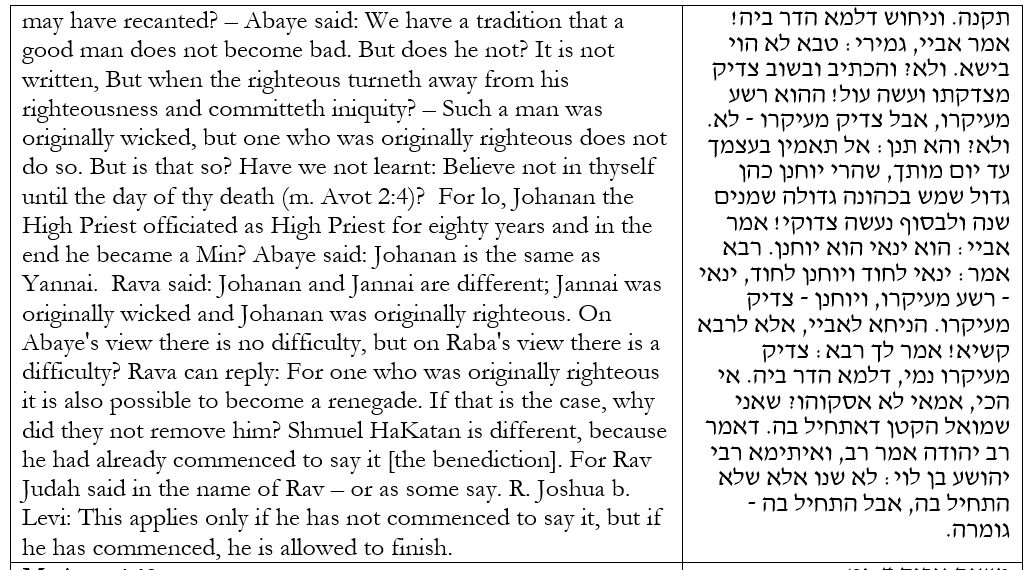
32. That Shmuel HaKatan wrote it is notable, not only for his reputation (see b. Sotah 48b, b. San 11a and parallel sources) but because Pirkei Avot reports that he was known for saying Prov. 24:17-18, the very same verses which began our discussion. 

33. Many people comment that only someone like Shmuel HaKatan who took Prov. 24:17-18 so seriously could be the one to write a blessing calling for the destruction of enemies. The theory being, only someone sensitive to the risks of sanctimony and schadenfreude could be trusted
34. In conclusion, I believe I have demonstrated that the Biblical and Rabbinic approaches to rejoicing over and praying for the downfall of the wicked are at best complicated if not mutually contradictory. Extending the scope of study does not make things simpler.
35. I will note that I have not encountered a normative statement indicating that such attitudes are either prohibited or obligatory i.e. "must" vs. "must not"
36. Rather, I believe this subject falls in the more nebulous category of "should," meaning, if it's a good idea to do so. It may or may not be depending on one's reasons, but I do believe a range of possibilities is attested in Biblical and Rabbinic literature.
37. What I will say at this time is that whether or not one feels its appropriate to rejoice over or pray for the downfall of the wicked cannot depend on whether or not one happens to agree that the wicked in question is in fact wicked (or at least wicked to a worthy degree)
38. The propriety of judging the relative evilness of people is a question for another time. But shifting one's theological arguments as it suits other arguments is dishonest and does a disservice to religious education.
39. Thank you very much for reading all the way to the end.
Have a lovely day and a Moadim LeSimha to all those celebrating Sukkot!
Have a lovely day and a Moadim LeSimha to all those celebrating Sukkot!
40. Addendum: Many thanks to @NoNameNoPr0blem for pointing out a source I missed. This midrash distinguishes between rejoicing when a Jew falls vs. a gentile.
Note that no such distinction is made in b. San 39b
Note that no such distinction is made in b. San 39b

• • •
Missing some Tweet in this thread? You can try to
force a refresh






